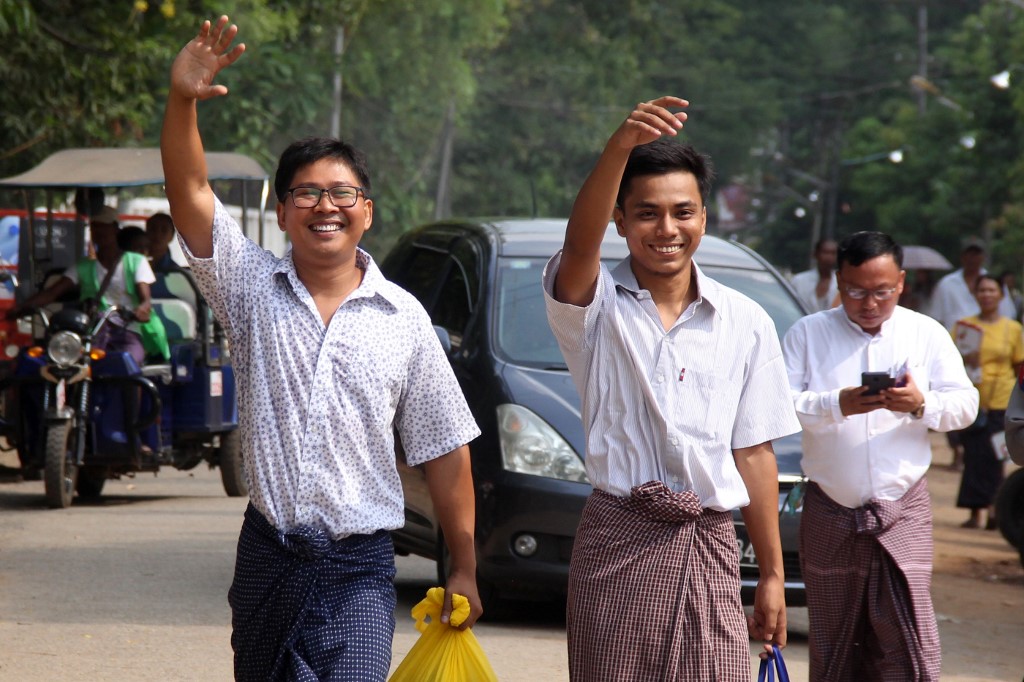
Two Reuters journalists who had been jailed for their reporting on the Rohingya crisis in Myanmar walked out of prison Tuesday, freed in a presidential amnesty.
Wa Lone and Kyaw Soe Oo were mobbed by media as they stepped out of Yangon's notorious Insein prison after their lengthy detention.
Their December 2017 arrests made them a global cause celebre and a sign of Myanmar's deteriorating press freedoms under civilian leader Aung San Suu Kyi.
Wa Lone, 33, thanked people from "around the world" for advocating for their release and vowed he would return to work.
"I can’t wait to go to my newsroom," he said. "I am a journalist and I am going to continue."
Reuters editor-in-chief Stephen Adler said: "We are enormously pleased that Myanmar has released our courageous reporters".
"Since their arrests 511 days ago, they have become symbols of the importance of press freedom around the world. We welcome their return."
The two men waved and smiled broadly as they walked out of the jail.
The pair were convicted on charges of violating the official secrets act and sentenced to seven years each.
At the time of their arrest they had been reporting on a September 2017 massacre of 10 Rohingya Muslims in conflict-hit Rakhine state, where the Myanmar army forced some 740,000 of the stateless minority to flee over the border to Bangladesh.
The case prompted an outcry around the world and crushed what was left of Suu Kyi's legacy as a rights defender.
Reuters has said the two were imprisoned in retaliation for their expose.
Last month Wa Lone and Kyaw Soe Oo were awarded the prestigious Pulitzer prize, one of journalism's top honours.
They were also featured earlier on the cover of TIME magazine as part of its person of the year coverage which featured journalists targeted for their reporting.
The case against them become a byword for the war against press freedom, and attracted support from prominent rights attorney Amal Clooney.
Rights groups and legal experts say the case against the reporters was riddled with irregularities.
A whistleblowing police officer testified during their trial that his superior had ordered his team to trap the reporters in a sting—testimony the judge chose to ignore.

